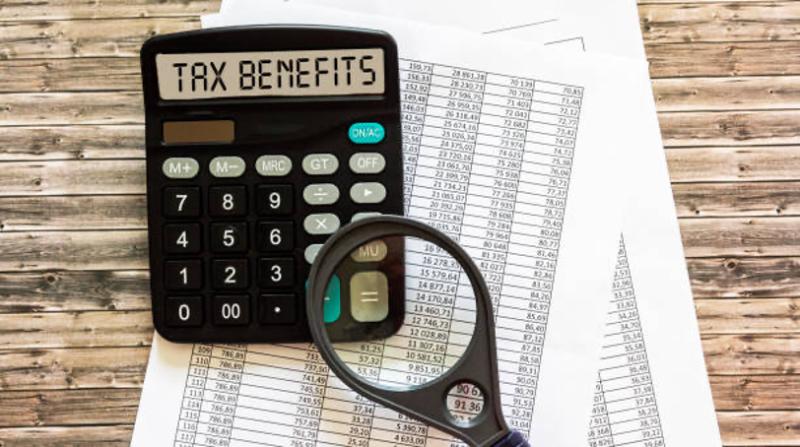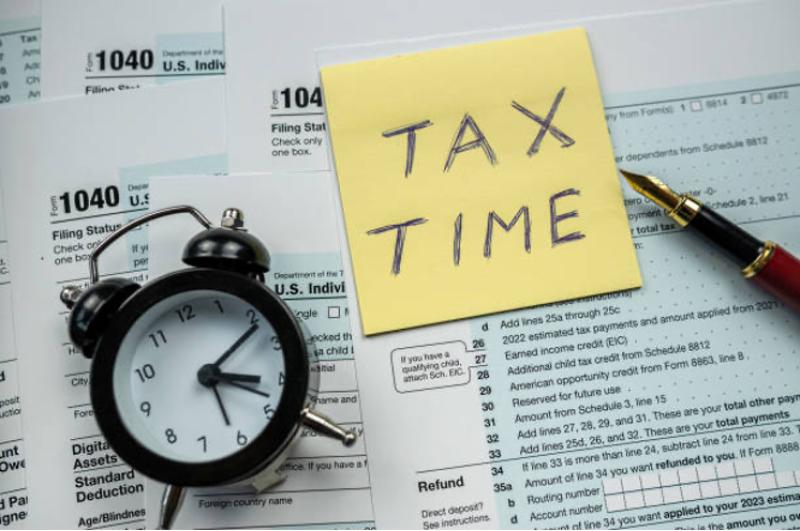Home > Investment Guide > Financial Guide
Tax Benefits Landlords Should Know

To be a successful landlord, investors must learn to navigate the complex financial implications of managing properties. In real estate, several expenses are to consider, including paying off your loans, the wages for staff you employ, and the money spent on repairs and maintenance. Thus, to offset some of your bills, it would be wise to understand the tax implications that come with it. In this ever-changing landscape, staying informed about the tax benefits landlords should know about is essential.
Are you looking to maximize the tax benefits of your real estate investments? Do you want to make a substantial difference in your financial bottom line? Well, we've got your back. This article delves into various tax advantages landlords should know, from deductions on mortgage interest to tax credits for energy-efficient upgrades. Understanding these benefits can reduce your tax burden and promote your rental properties' profitability. Now, let's dive in:
Tax Benefits Landlords Should Know
Cost of Repair and Maintenance
Expenses related to repair and maintenance are a given when it comes to real estate and are one of the most common deductible landlords can legally claim. From leaking roofs to broken tiles or faulty appliances, investors can deduct the cost of repairs and maintenance on rental properties from their taxable income. In other words, you're exempt from paying taxes on money for fixing and maintaining the property in good condition.
Since home improvements typically do not fall under repairs and maintenance, you can't get a tax deduction for renovations. However, there are exemptions for improvements that qualify as medical expenses, like expanding doorways and modifying bathrooms for disabled residents. Some landlords get around this law by using their mortgage to make home improvements and leverage tax deductions on loan interests.
Interest-Related Tax Write-Offs
Another tax benefit landlords should know includes interest-related tax write-offs. Most investors require external financing to secure their properties through loans. Investors can write off interest expenses related to their rental property's mortgage, reducing their taxable income and overall tax liability. Thankfully, this tax benefit applies to all loans, including mortgage construction, home improvement, refinancing, and hard money loans. In other words, whatever financing method you choose, you can significantly reduce your taxable income by writing off the mortgage interest.
Cost of Depreciation
Rental property owners can significantly benefit from depreciation deductions if they understand how to utilize this tax advantage. But to do that, investors must know what rental property depreciation is.
There's a general understanding that properties' physical structures depreciate over time. The older a home is, the more likely it is for the wiring, plumbing, and wear and tear to worsen, resulting in added expenses for the landlord.
However, depreciation tax benefits allow investors to spread the property's cost over its useful life. Calculating it accurately can result in substantial tax savings and enhance a landlord's financial situation and overall profitability.
Travel Expenses
Managing a rental property occasionally requires you to be on sight. From house viewings to tending to tenant complaints and overseeing renovations, landlords can run up a considerable bill on transportation to and from their rentals. Thus, the IRS includes travel expenses as one of the tax benefits property owners can claim.
Even if your rental is out of state, these deductions often extend to plane tickets and hotel fares for overnight trips. Although standard mileage rates differ from state to state, examine yours before making deductions. Also, remember to keep receipts of lodging, meals, taxis, or parking fees you incur during the trip.
Utilities
Utilities are one of the many operating expenses landlords have to account for when managing a rental property. From electricity to water and garbage disposal, property owners need to make arrangements to provide such services so their rental remains habitable and they stay in business. Landlords who pay for such utilities can deduct the expenses from their taxable income, reducing the burden on their finances.
Pass-Through Deductions
Sure, landlords with rental income from pass-through entities can qualify for a deduction of up to 20% of their qualified business income. However, this tax benefit is complex and applies to only a few. To qualify for a pass-through deduction, you must own your rental property through an LLC or similar partnership and be classified as a business rather than an investment. Landlords must keep detailed records of their income and expenses and perform at least 250 hours of real estate rental service annually to take full advantage of these benefits.
Home Office Deduction
Landlords with a dedicated home office for managing their rental properties may be eligible for a home office deduction. This tax benefit is closely related to the pass-through deduction as it allows you to qualify for a deduction if you regularly use a portion of your home for business.
How to Report Rental Income on Tax Returns

1. Keep Detailed Records
Reporting rental income on tax returns is crucial for landlords to comply with tax laws. Thus, it's essential to maintain meticulous records of all income and expenses associated with your rental property. These records should include rent payments, repair costs, mortgage interest, property taxes, and other relevant fees. Bay Property Management Group Northern Virginia assists with documentation of rental expenses to help you keep detailed records.
2. IRS Form Schedule E
In the US, property owners are to use the IRS Schedule E to report their rental income and expenses. You’re to report all sources of rental income, including rent payments, security deposits, and any fees charged to tenants. On this form, you'll also deduct eligible expenses such as mortgage interest, property management fees, property taxes, insurance, and maintenance costs.
After deducting your expenses from your gross income, you'll arrive at your taxable rental income. Thus, knowing what tax benefits you're eligible for and keeping detailed records of those expenses can help you.
3. State and Local Taxes
Be aware that state and local tax rules may differ from federal rules. Thus, it's essential to research your municipality's most updated policies on rental tax income. As a result, if you have multiple properties nationwide, you must ensure compliance with your local tax laws in each state.
4. Consult a Tax Professional
Rental property tax rules can be complex. Consider seeking assistance from a tax professional to maximize your deductions while staying within the law. It's essential to report rental income accurately to avoid potential legal issues with the IRS, and consulting an expert can help you leverage the tax benefits available to landlords in your area.
Conclusion
Expenses like repair and maintenance costs, mortgage interest, and property depreciation are amongst some of the top tax benefits landlords should know. Understanding how and when these rental property deductions apply can maximize your financial gains.
Also, by keeping meticulous records, using IRS Schedule E, and adhering to state and local tax laws, you ensure that you report your rental income accurately. However, tax laws can be intricate and may vary by location. So, seeking guidance from a tax professional or a local property manager is a prudent step for landlords to maximize these benefits while staying compliant with the law.
More to Read:
Previous Posts:




